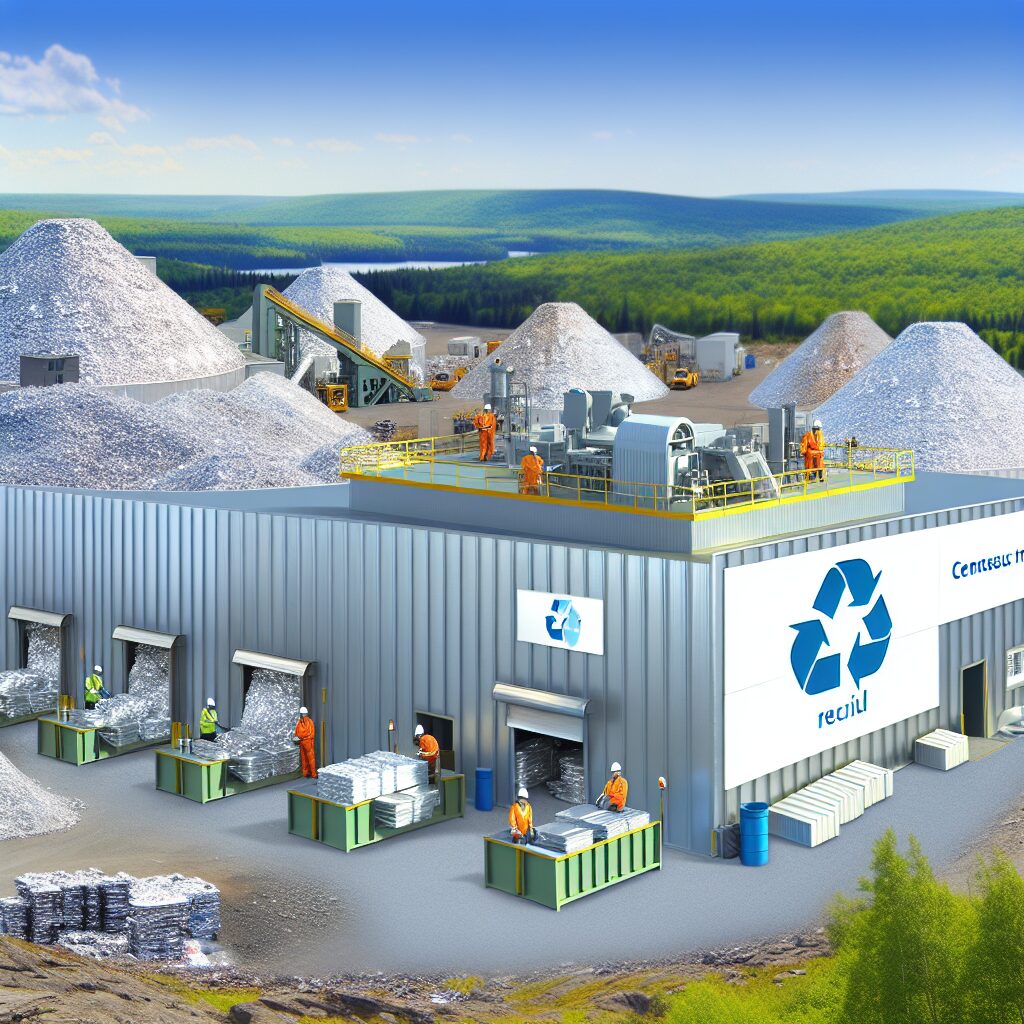Rio Tinto Invests in New Aluminum Recycling Center in Quebec
Global mining giant Rio Tinto is making significant strides towards sustainability with its latest investment in Quebec. The company has announced the development of a state-of-the-art aluminum recycling center in the region, marking a pivotal moment in their commitment to green initiatives and the circular economy.
Embracing Sustainability and Innovation
Rio Tinto’s new aluminum recycling facility is expected to be a game-changer in the industry. This investment aligns with the company’s broader strategy to reduce carbon emissions and promote sustainable practices. The facility will employ advanced recycling technologies to process aluminum scrap into high-quality, reusable aluminum. This not only conserves natural resources but also minimizes the environmental footprint associated with aluminum production.
Key Features of the Recycling Center
The recycling center will feature cutting-edge technology designed to maximize efficiency and minimize waste. Some of the key components of the facility include:
* State-of-the-art Recycling Equipment: The center will be equipped with advanced machinery capable of processing various types of aluminum scrap, ensuring high recovery rates and superior quality of the recycled material.
* Energy-efficient Operations: The facility will utilize energy-efficient processes to reduce its overall carbon footprint, supporting Rio Tinto’s goal of achieving net-zero emissions by 2050.
* Water Recycling Systems: To further enhance its sustainability credentials, the center will incorporate water recycling systems to conserve water and reduce waste.
Economic and Environmental Benefits
The establishment of this recycling center is expected to bring numerous economic and environmental benefits to the region. On the economic front, the facility will create job opportunities and stimulate local economies. The demand for recycled aluminum is on the rise, and Quebec stands to benefit from this growing market.
Environmentally, the recycling center will play a crucial role in reducing the need for primary aluminum production, which is energy-intensive and has a significant carbon footprint. By recycling aluminum, Rio Tinto will help decrease greenhouse gas emissions and conserve natural resources, contributing to global efforts to combat climate change.
Supporting the Circular Economy
Rio Tinto’s investment in the new aluminum recycling center is a testament to its commitment to the circular economy. By focusing on recycling and reusing materials, the company aims to create a more sustainable and resilient supply chain. The circular economy model promotes the continual use of resources, reducing waste and encouraging the regeneration of natural systems.
A Step Towards a Greener Future
The new recycling center is part of Rio Tinto’s broader sustainability initiatives. The company has been actively working on various projects to reduce its environmental impact, including investments in renewable energy, emissions reduction technologies, and sustainable mining practices.
Rio Tinto’s CEO, Jakob Stausholm, emphasized the importance of sustainability in the company’s operations. “Our investment in the new aluminum recycling center in Quebec is a significant step towards achieving our sustainability goals. We are committed to reducing our carbon footprint and promoting a circular economy. This facility will help us achieve these objectives while providing economic benefits to the local community.”
Collaboration with Local Stakeholders
The success of the new recycling center will depend on collaboration with local stakeholders, including government agencies, community organizations, and businesses. Rio Tinto is committed to working closely with these stakeholders to ensure the facility operates smoothly and meets the highest environmental and safety standards.
The company is also dedicated to transparency and accountability, regularly reporting on its sustainability performance and progress towards its goals. This open approach fosters trust and encourages continuous improvement in its environmental practices.
Conclusion
Rio Tinto’s investment in a new aluminum recycling center in Quebec is a significant milestone in its journey towards sustainability. The facility will not only contribute to reducing the environmental impact of aluminum production but also provide economic benefits to the local community. This initiative underscores Rio Tinto’s commitment to the circular economy and its role as a leader in sustainable practices.
As the world continues to grapple with the challenges of climate change and resource depletion, investments like these are crucial in building a greener, more sustainable future. Rio Tinto’s new recycling center is a shining example of how businesses can innovate and adapt to meet the demands of a changing world.
Source
https://www.waste360.com/waste-recycling/rio-tinto-invests-in-a-new-aluminum-recycling-center-in-quebec

